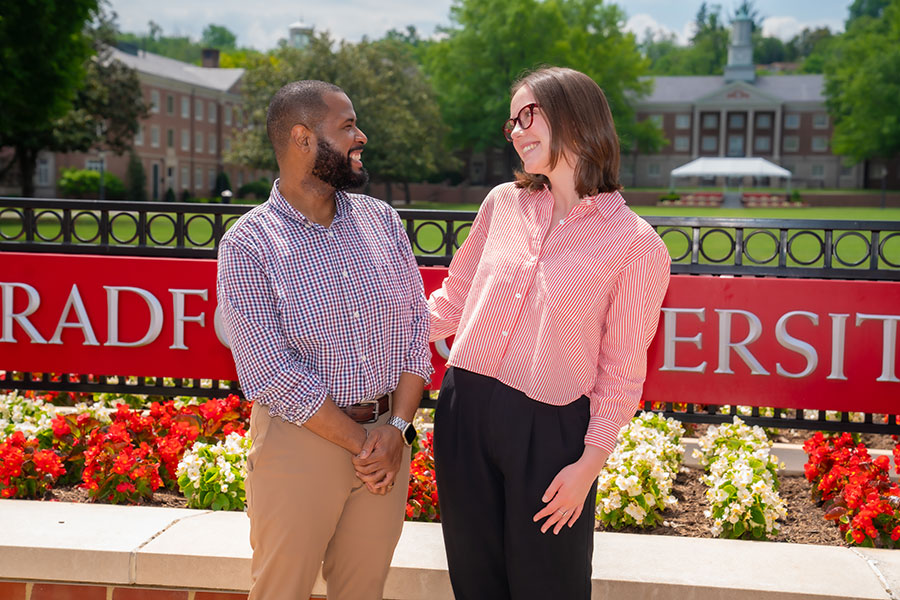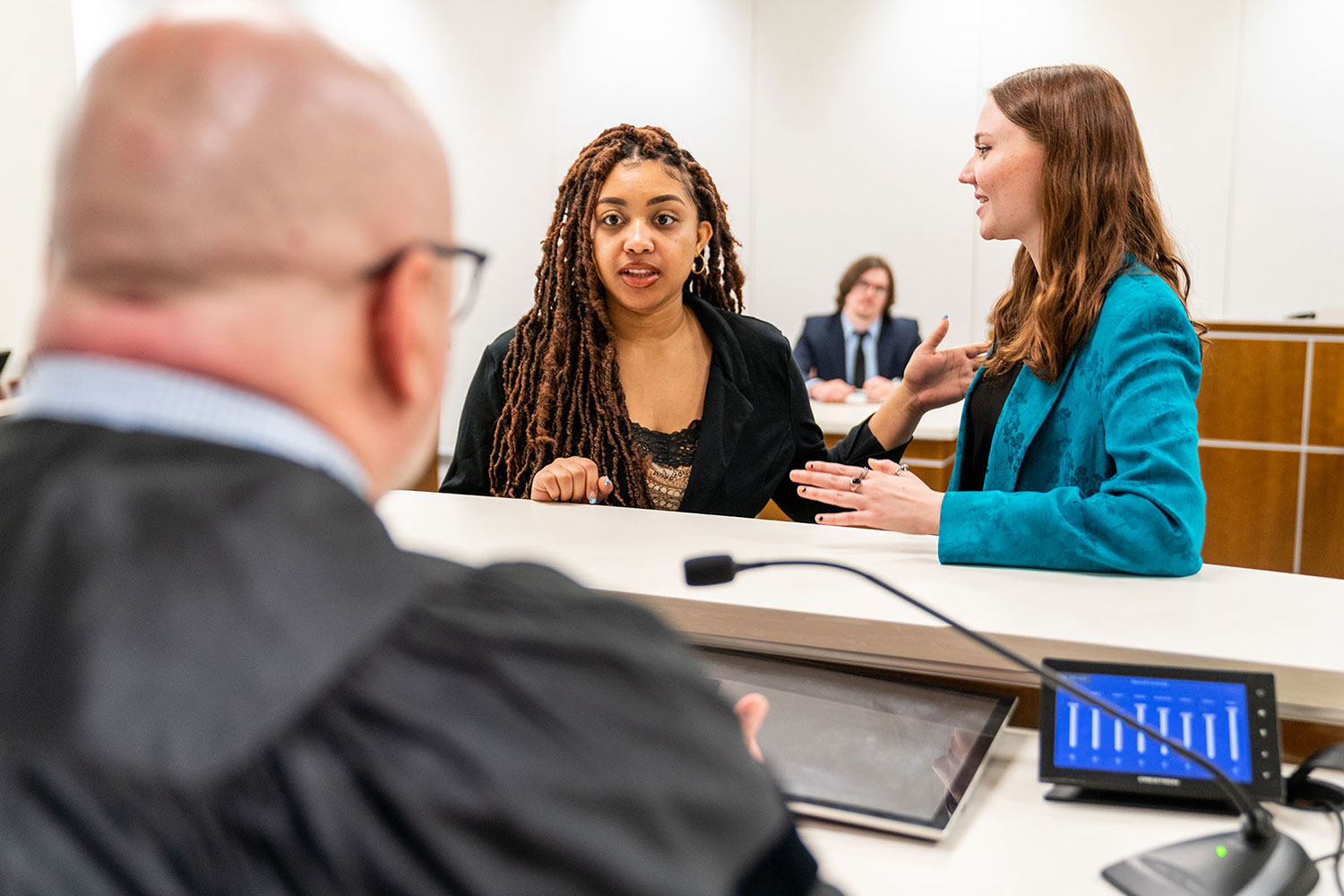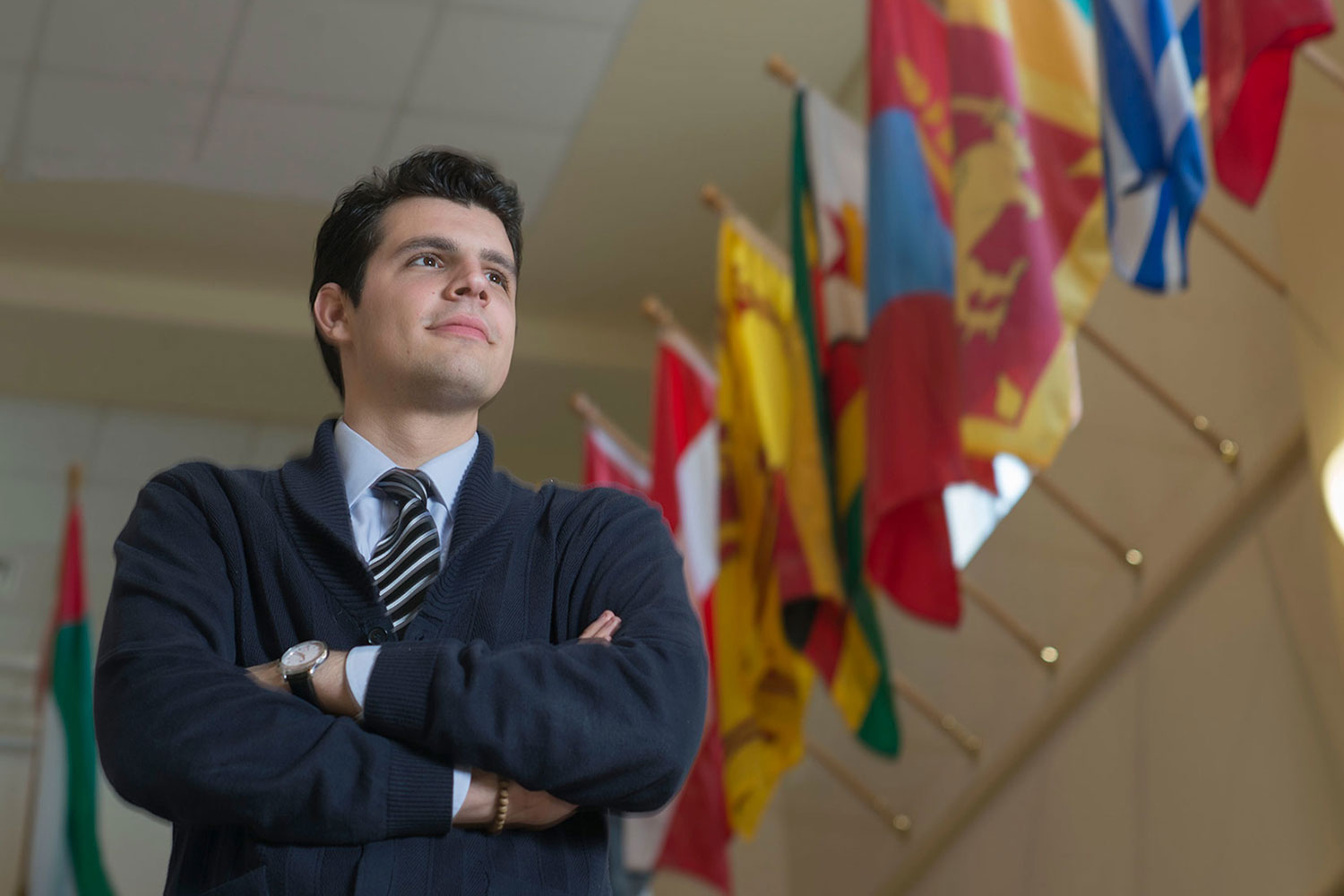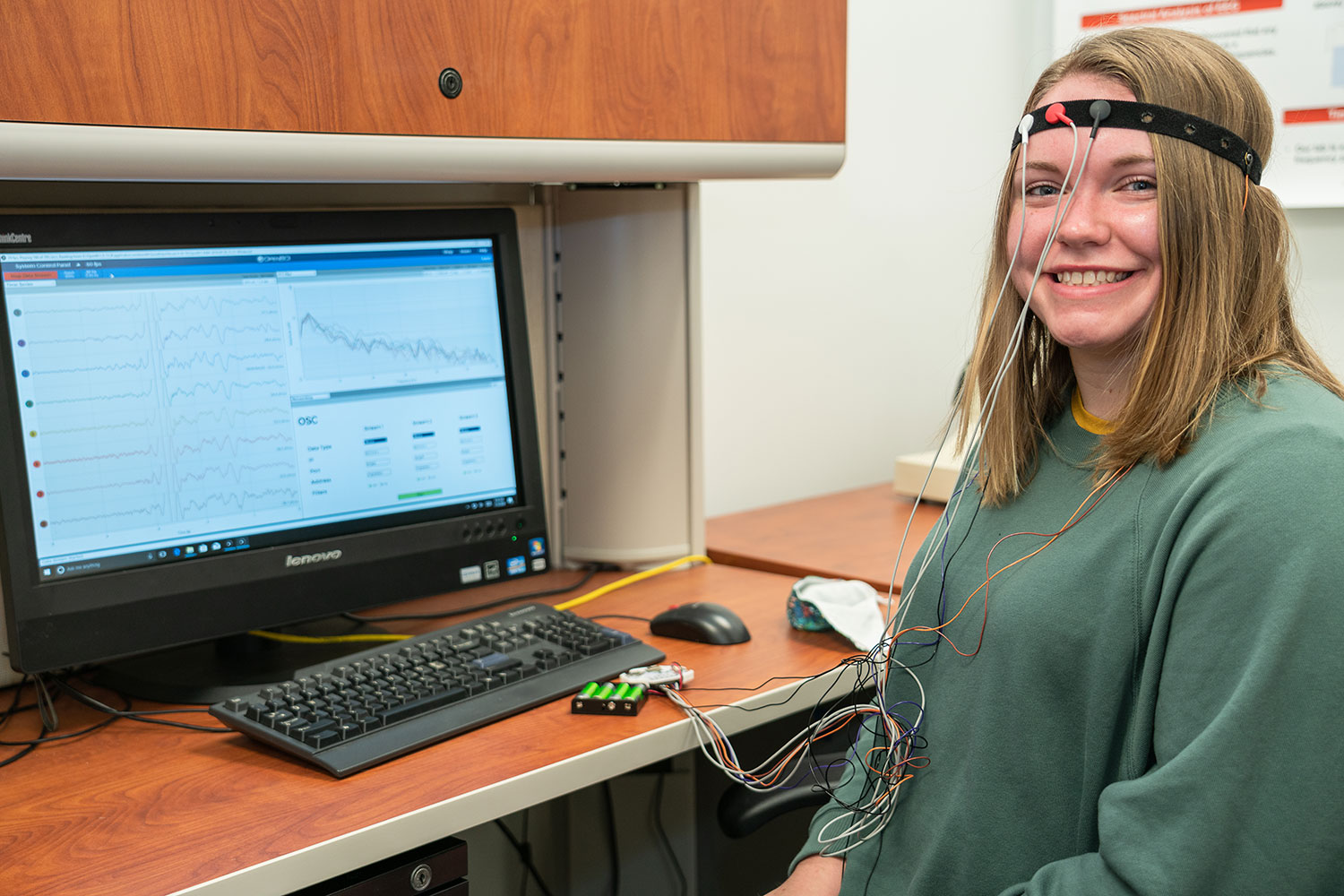Radford University
College of Humanities and Behavioral Sciences
Build a Foundation for Lifelong Learning

The College of Humanities and Behavioral Sciences offers degree programs and individual classes designed to emphasize the liberal arts as a foundation for lifelong learning. We offer a number of degrees that lead to specific career paths in public relations, media, criminal justice, counseling, technical writing and forensics. View our academic programs
Academic Departments and School

New School of Writing, Language and Literature
In August 2024, the State Council of Higher Education for Virginia (SCHEV) approved the merger of the Department of English and the Department of Foreign Languages and Literatures into the School of Writing, Language and Literature. Located in the College of Humanities and Behavioral Sciences, the new school will oversee all academic programs and curricula in languages, literatures and cultures at the university.
Research and Outreach
The College of Humanities and Behavioral Sciences supports a variety of centers and labs focused on research and outreach to enhance educational and professional opportunities for our students and the community.
Our Facility
Hemphill Hall
Our College is housed in a state-of-the-art facility that opened in 2016. Hemphill Hall is the largest academic building on campus and features many professional-quality centers, labs, research space and classrooms.

Our College in the News
-
Highlanders in the News: July 2025
July 2, 2025
This month: Associate Professor Jenny Hall helps take a bit of the bite out of tick season; Assistant Professor Tanya Mitropoulos proves that it’s bad idea for dog owners to bring their work headaches home; and the story of how a summer stint on Radford’s campus for Governor’s School fueled a young actor’s fire.

-
Aaron Gardner and Sara Johnson have done more than find their place at Radford. They have positively impacted a welcoming community and built a lifelong friendship along the way.

-
Highlander Highlights: June 2025
June 12, 2025
Highlander Highlights for June 2025 shares with readers some of the extraordinary research and accomplishments happening on and off campus through the tireless work and curiosity of our students and faculty.









